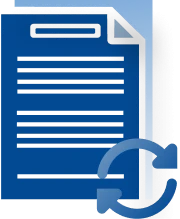Investment Education
- Basic
- Intermediate
- Advance
Sharia Capital Market
Sharia capital markets include all capital market activities that are not contrary to Islamic principles. The Indonesian Islamic capital market is part of the Islamic financial industry regulated by the Financial Services Authority (OJK).
This system has the following features that differentiate it from conventional systems:
-
Using sharing profits
Investment managers provide profits through profit-sharing programs allocated according to contracts and arrangements. The level of income from investment contracts depends on the status of the Sharia investment business.
-
There is a win-lose agreement
In investment contracts, profit percentages and losses are agreed upon. This allows investors to know what percentage of the loss they will have to bear if the company loses money.
-
In accordance with Islamic Sharia
Investing is a risky activity as there are many uncertainties. Islam thus provides a Shariah mechanism to avoid usury, ghalal (opacity), and maysir (gambling) by clarifying the flow of money and the distribution of profits and losses in contracts.
Types of Islamic Investment:
-
Sharia Stocks
Islamic shares listed in the Indonesian Islamic Capital Market,n IDX or not, are either listed or incorporated into the List of Islamic Securities (DES) issued by OJK regularly, every May and November. Currently, the criteria for the selection of Islamic shares by OJK are as follows.
According to IDX, there are several criteria for Islamic shares by OJK as follows :
a. The Company does not conduct any business activities as follows:
- Gambling and games considered as gambling;
- Trading that is prohibited according to Islam, such as trading that is not followed by delivery/transfer of products and or services, trading with a fake offer or demand;
- Ribawi financial services, such as interest-based banks; and interest-based finance companies;
- Buying and selling of risks that involve speculation (gharar) and gambling (maisir);
- Producing, distributing, trading, and or providing products or services that are forbidden because of their contents (haram li-dzatihi);
b. The Company fulfills the following financial ratios:
- The ratio of interest-based liabilities to total Assets is not more than 45% or
- The ratio of interest income and other non-Islamic income to total revenue is no more than 10%
- Sukuk
A sukuk is a shariah instrument in the form of a certificate or proof of title that has equal value and represents an undivided portion of the underlying asset (underlying asset). Underlying Assets are assets that are subject to or underlying the Sukuk issuance. These assets are typically tangible objects such as land, buildings, and development projects. However, intangible assets such as services can also be used as underlying assets.
-
Islamic Mutual Fund
OJK defines a Sharia mutual fund as a collective investment vehicle managed by an investment manager. This operation is conducted by investing funds in Sharia securities in the form of Sharia shares, sukuk, or other Sharia securities, both domestically and internationally.
-
Islamic Exchange Traded Fund (ETF)
The Shariah ETF secures securities with a portfolio of financial assets in the form of loan receivables that do not conflict with Shariah principles in the capital markets.
There are two types of Shariah ETFs issued:
- Form a collective investment agreement between the investment manager and custodian bank
- Form of participation letter.
-
Islamic Real Estate Investment Trust (REIT)
Islamic Real Estate Investment Trust (REIT) is a forum dedicated to raising capital from investors for real estate investments. Islamic Real Estate Investment Trust (REIT) is a form of collective investment agreement that must comply with Shariah principles in the capital market.


